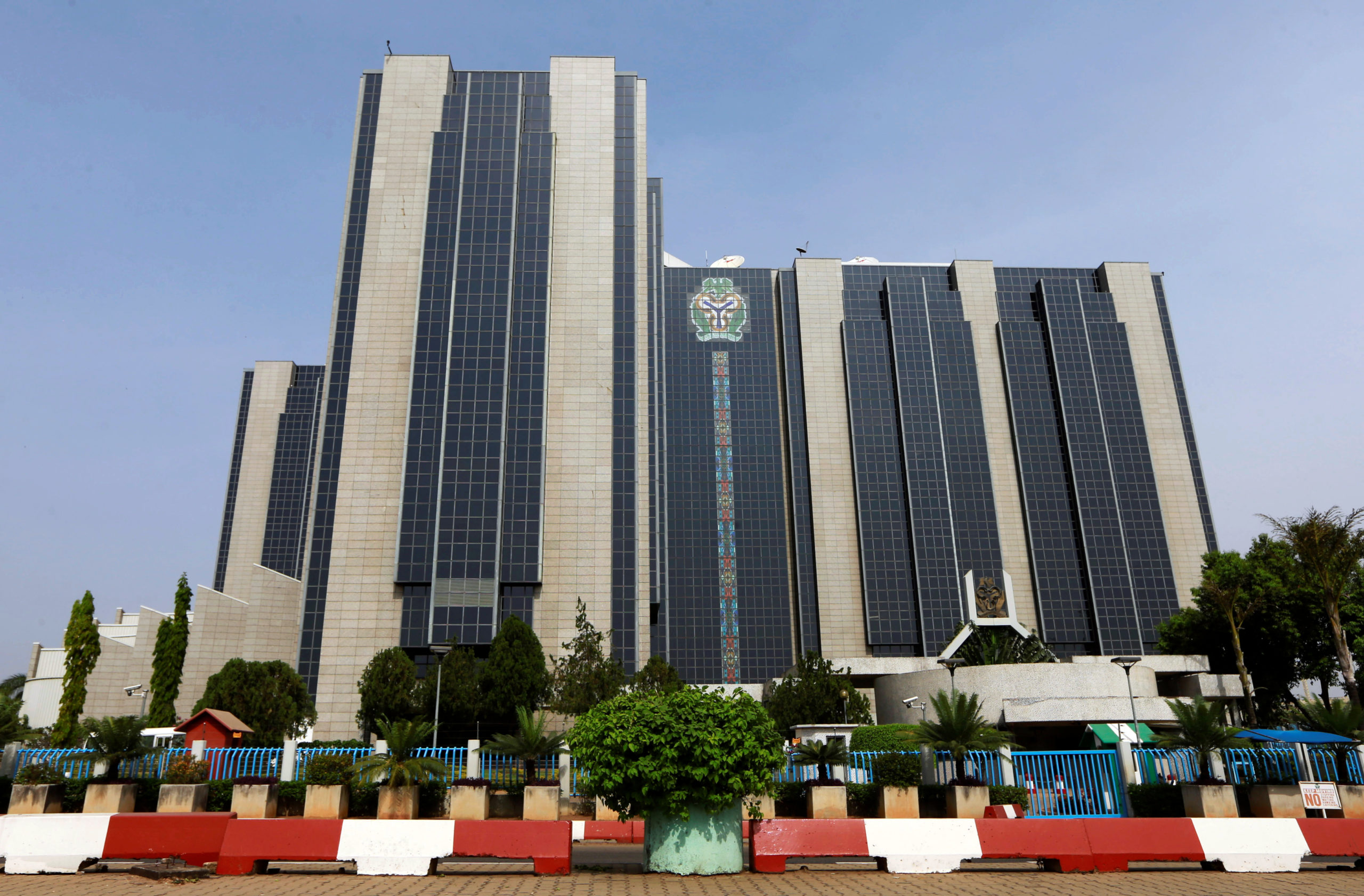Kayode Tokede
Following the monetary tightening measures by the Central Bank of Nigeria (CBN), the financial sector contribution to real Gross Domestic Product (GDP) declined to N1.65 trillion closed in the second quarter (Q2) of 2025, about 7.1 per cent quarter-on-quarter (QoQ) decline from N1.78 trillion reported in first quarter of 2025.
Analysts attribute the slowdown primarily to the CBN’s intensification of monetary tightening measures, which slowed banks’ creation of risky assets.
The financial institutions have embarked recapitalisation exercises in line with the CBN mandate for fresh capital injections to support in real sector developments and advancement in digitalisation of payment services.
Specifically, the CBN recapitalisation program aims to strengthen the financial system, enabling banks to support long-term projects and economic growth. `The exercise has attracted more foreign investors and inflows that have enhanced banks’ capital base.
Also, the CBN initiative aims to position Nigerian banks to finance large-scale infrastructure and industrial development, contributing to the country’s $1 trillion economy goal by 2031.
The apex bank has continued to tighten liquidity in its request to strengthen Naira at the foreign exchange market and tackle inflation.
The National Bureau of Statistics (NBS) in a report, “Nigerian Gross Domestic Product Report,” revealed that both the financial institution and insurance sectors contribution stood at N1.42 trillion in Q2 2024, about 16.13 per cent Year-on-Year (YoY) increase when compared to N1.65 trillion in Q2 2025.
A breakdown revealed that financial institutions in Q2 2025 recorded N1.45 trillion GDP contribution by value, representing a 9.96 per cent QoQ from 1.61 trillion in Q1 2025, while the insurance sector recorded N198.66 billion in Q2 2025, up by 20.7 per cent QoQ when compared to N164.58 billion in Q1 2025.
The report by NBS stated the finance and insurance sector consists of the two subsectors, financial institutions, and Insurance, in which the former accounted for 87.97 per cent and the latter 12.03 per cent of the sector respectively in real terms in Q2 2025.
“The sector grew at 63.66per cent in nominal terms (year-on-year), with the growth rate of Financial Institutions at 65.24per cent and 53.00per cent growth rate recorded for Insurance. The overall rate was higher than Q2 2024 by 30.96percentage points, and higher by 42.6percentage points than the preceding quarter.
“The quarter-on quarter growth was 59.54per cent. The sector’s contribution to the nominal GDP was 4.57per cent in Q2 2025, higher than the 3.33per cent it represented a year previous, and higher than the contribution of 3.07per cent it made in the preceding quarter.
“Growth in this sector in real terms totaled 16.13per cent, higher by 15.83percentage points from the rate recorded in the 2024 second quarter and higher by 1.09percentage points from the rate recorded in the preceding quarter. QoQ growth in real terms stood at -7.13per cent,” NBS explained.
According to the report, the contribution of finance and insurance to real GDP totalled 3.23 per cent, higher than the contribution of 2.89 per cent recorded in the Q2 2024 by 0.33 percentage points, and lower than 3.60 per cent recorded in Q1 2025 by 0.38 percentage points.
The NBS disclosed that Nigeria’s real GDP grew by 4.23 per cent YoY in real terms in the Q2 2025, higher than the 3.48per cent recorded in the Q2 2024.
During the quarter under review, agriculture grew by 2.82 per cent, an improvement from the 2.60 per cent recorded in the corresponding quarter of 2024.
The growth of the industry sector stood at 7.45 per cent from 3.72 per cent recorded in the second quarter of 2024, while the Services sector recorded a growth of 3.94 per cent from 3.83per cent in the same quarter of 2024.
“In terms of share of the GDP, the Industry sector contributed more to the aggregate GDP in the second quarter of 2025 at 17.31 per cent compared to the corresponding quarter of 2024 at 16.79 per cent,” the report by NBS disclosed.
Speaking on financial institutions’ contribution to real GDP, the Vice President, Highcap Securitas Limited, Mr. David Adnori said, “The slowdown in the Finance and Insurance sub-sector was primarily due to the CBN’s intensification of monetary tightening measures, which slowed banks’ creation of risky assets.”
Analysts have attributed this contraction to a slowdown in the volume of transactions banks undertook owing to a high interest rate environment.
The Managing Director, Globalview Capital Limited, Mr. Aruna Kebira in a chat with THISDAY said the decline in the contribution of the finance and insurance sector to Nigeria’s real GDP in Q2 2025 is primarily driven by the CBN monetary tightening policies.
“These policy measures, which include high interest rates, are designed to combat inflation but can lead to a slowdown in financial and transactional activities. The CBN’s consistent efforts to tighten monetary policy by raising interest rates and the MPR directly impacted the financial sector. A high-interest-rate environment can slow down lending and reduce the creation of new financial assets, as banks become more cautious and borrowers are less inclined to take on new loans. This reduction in the volume of transactions ultimately lessens the sector’s contribution to overall GDP,” he said.
He added, “The high-interest-rate environment, coupled with broader economic challenges such as high energy costs and foreign exchange devaluation, has led to a reduction in the volume of financial transactions. With a harsh operating environment, both businesses and individuals reduced their borrowing and investment activities, directly affecting the profitability and growth of financial institutions.
“The slowdown was also observed across both the financial institutions and insurance sub-sectors. While financial institutions still dominated the sector’s output, the overall QoQ growth for the entire sector was negative. The insurance sub-sector also faced a challenging environment, contributing to the overall decline.”
On the insurance sector, he said the challenges facing Nigeria’s insurance sub-sector that contributed to its decline in Q2 2025 include a lack of public trust, low penetration rates, and a challenging economic environment.
He said the sector has long struggled with a lack of public confidence, often due to a history of poor claims management and a general perception of insurance as a scam. “This widespread distrust, fueled by past experiences of delayed or denied claims, makes it difficult to attract new policyholders and expand the market,” he said.
“Insurance penetration in Nigeria remains below 1 per cent of the population, a stark contrast to other African countries. This is largely due to low awareness about the benefits of insurance, as well as cultural and religious beliefs that can discourage its adoption. Many Nigerians view insurance as a product for the wealthy or as an unnecessary financial burden.
“The broader economic climate, including high inflation and the devaluation of the naira, has negatively impacted the sector. High inflation reduces the purchasing power of consumers, making it harder for them to afford insurance premiums. Additionally, high interest rates can affect the profitability of life insurance products, which are sensitive to financial market conditions.
“But with the enactment of the NIIRA2025, accretion in the Nigerian reserves, decrease in inflation rate, and the likelihood of the MPC tempering with the MPR, the banking sector recapitalisation may swing the narratives in the Q3 2025 GDP contribution,” he added.
The post Q2: Financial Sector Contribution to GDP Slumps to N1.65trn appeared first on THISDAYLIVE.


